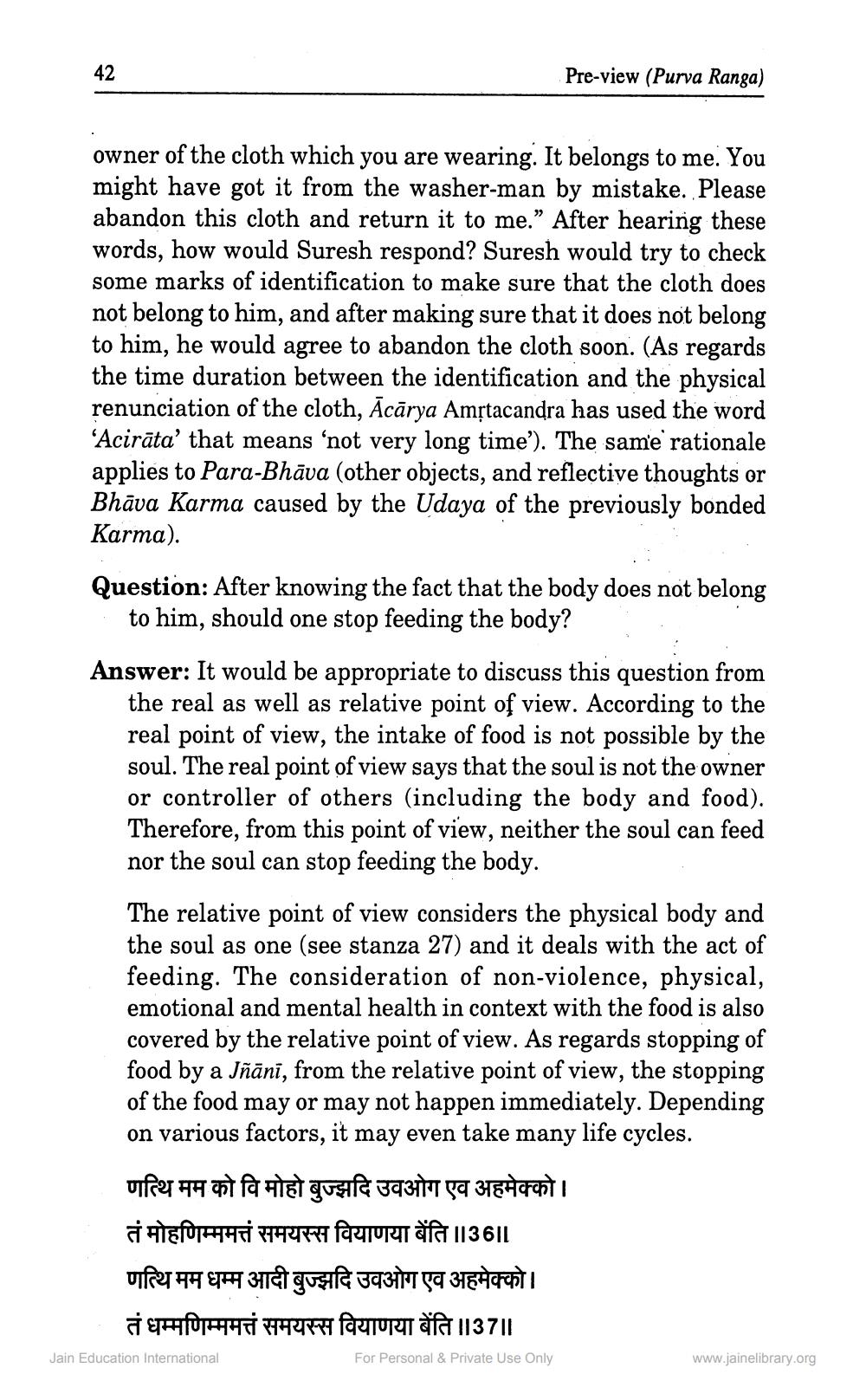________________
42
owner of the cloth which you are wearing. It belongs to me. You might have got it from the washer-man by mistake. Please abandon this cloth and return it to me." After hearing these words, how would Suresh respond? Suresh would try to check some marks of identification to make sure that the cloth does not belong to him, and after making sure that it does not belong to him, he would agree to abandon the cloth soon. (As regards the time duration between the identification and the physical renunciation of the cloth, Acārya Amṛtacandra has used the word 'Acirāta' that means 'not very long time'). The same rationale applies to Para-Bhāva (other objects, and reflective thoughts or Bhāva Karma caused by the Udaya of the previously bonded Karma).
Pre-view (Purva Ranga)
Question: After knowing the fact that the body does not belong to him, should one stop feeding the body?
Answer: It would be appropriate to discuss this question from the real as well as relative point of view. According to the real point of view, the intake of food is not possible by the soul. The real point of view says that the soul is not the owner or controller of others (including the body and food). Therefore, from this point of view, neither the soul can feed nor the soul can stop feeding the body.
The relative point of view considers the physical body and the soul as one (see stanza 27) and it deals with the act of feeding. The consideration of non-violence, physical, emotional and mental health in context with the food is also covered by the relative point of view. As regards stopping of food by a Jñānī, from the relative point of view, the stopping of the food may or may not happen immediately. Depending on various factors, it may even take many life cycles.
थममको विमोहो बुज्झदि उवओग एव अहमेक्को ।
तं मोहणिम्ममत्तं समयस्स वियाणया बेंति ॥36॥
णत्थि मम धम्म आदी बुज्झदि उवओग एव अहमेक्को ।
तं धम्मणिम्ममत्तं समयस्स वियाणया बेंति ॥37॥
Jain Education International
For Personal & Private Use Only
www.jainelibrary.org




